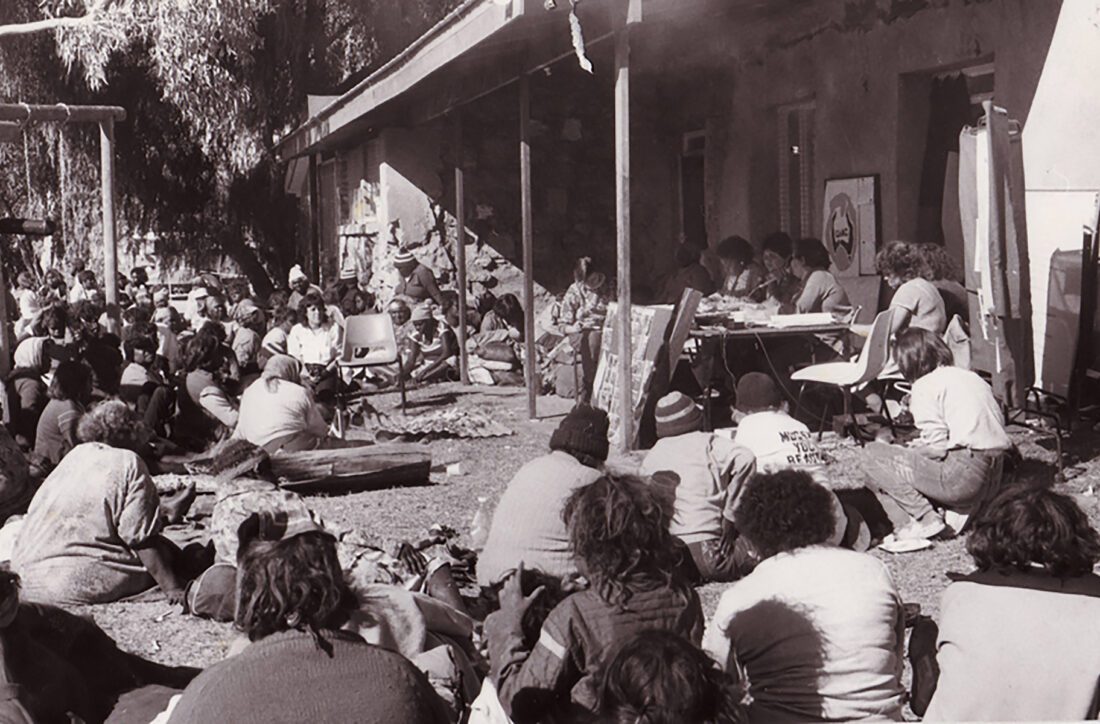Congress celebrates the opening of a new Alukura birthing service aiming to reduce pre-term labour and promote healthier birth weights
In 1984 several hundred Aboriginal women from more than sixty communities and eleven language groups across more than 30,000 sq kilometres in Central Australia met in Alice Springs to establish what was to become Congress Alukura by the Grandmother’s Law.
Central to their vision was to birth under Aboriginal community control in a way that would ensure the traditional cultural integrity of the birthing process on Aboriginal land.
“Since it began in 1986 Alukura has been through stages where it was able to support births at Alukura but without a formal agreement with Alice Springs hospital the capacity to support the majority of births was not possible,” said Donna Ah Chee, the Chief Executive Officer of the Central Australian Aboriginal Congress
“Since the early 2000’s Congress Alukura has been trying to establish a Midwifery Group Practice model of care as the evidence that this type of service model is the most effective has been well established for a long time.
“Aboriginal women have continued to be very clear, as are all women, that they prefer continuity of care with a known midwife throughout their pregnancy. Unfortunately, the first two iterations of this service model in 2004 and in 2009 could not be sustained.”
In 2020 Congress then partnered with the Molly Wardaguga Research Centre, based at Charles Darwin University, as well as the largest private provider in Australia of Midwifery led care, My Midwives.
“This partnership approach has been successful in securing a new birthing agreement with Alice Springs Hospital which has enabled the establishment of the new Alukura MGP service, provided in partnership with My Midwives,” Ms Ah Chee explained.
“The redesign of the MGP has been re-invigorated and improved based on the success of the Indigenous Birthing in an Urban Setting (IBUS) prospective cohort study) in South-East Queensland. IBUS produced high-level evidence of clinical, cultural and cost effectiveness for First Nations families. Relative to standard care, the SEQld intervention was associated with a 38% reduction in the odds of preterm birth[1] and $4810 cost savings per mother-baby pair[2].
“The new Alukura MGP service will test the same service model in Central Australia which has not previously been done in a remote context anywhere in Australia.
“There is very good reason however to assume that this service model will provide better outcomes for Aboriginal women in Central Australia as well.”
The partnership has been successful in securing funding for the research support through the RISE SAFELY project, funded by the Medical Research Future Fund (MRFF). The RISE SAFELY project is a complex intervention with four pillars of the RISE framework: R= Redesign maternal child health services to increase continuity and quality of care; I=Invest in a clinically and culturally exceptional workforce; S= Strengthen First Nations family capacity through connection and belonging; and E= Embed First Nations community engagement, governance, and control.
“Congress has allocated funding for the midwifery care aspect of the intervention as well as Aboriginal Maternity Care workers from our core primary health care funds. We have also recently been advised that our submission to secure operational funding for a First Nations workforce to focus on the S Pillar: Strengthening Families through Connection and Culture, has been supported by the First Nations Health Division.” Ms Ah Chee said.
“The new service commenced late last year and there have already been more than 50 births supported by the new partnership service with early indications of improved outcomes including in the critical area of supporting pregnancies go closer to full term.
“Congress is very grateful for the support we have received from both the NT Health (including Alice Springs Hospital) and the Commonwealth’s First Nations Health Division.
“Given how important a healthy birth weight it is to lifelong health and the prevention of chronic diseases we are very confident that this new MGP will help to Close the Gap in Aboriginal Life Expectancy,” concluded Ms Ah Chee.
<ENDS>
Images from the launch will be available by request via kate.buckland@caac.org.au
